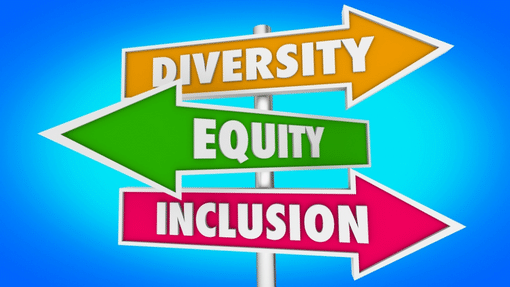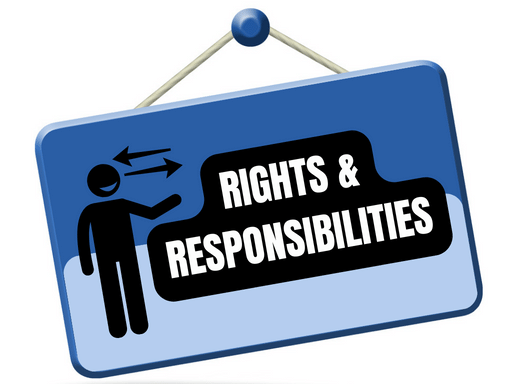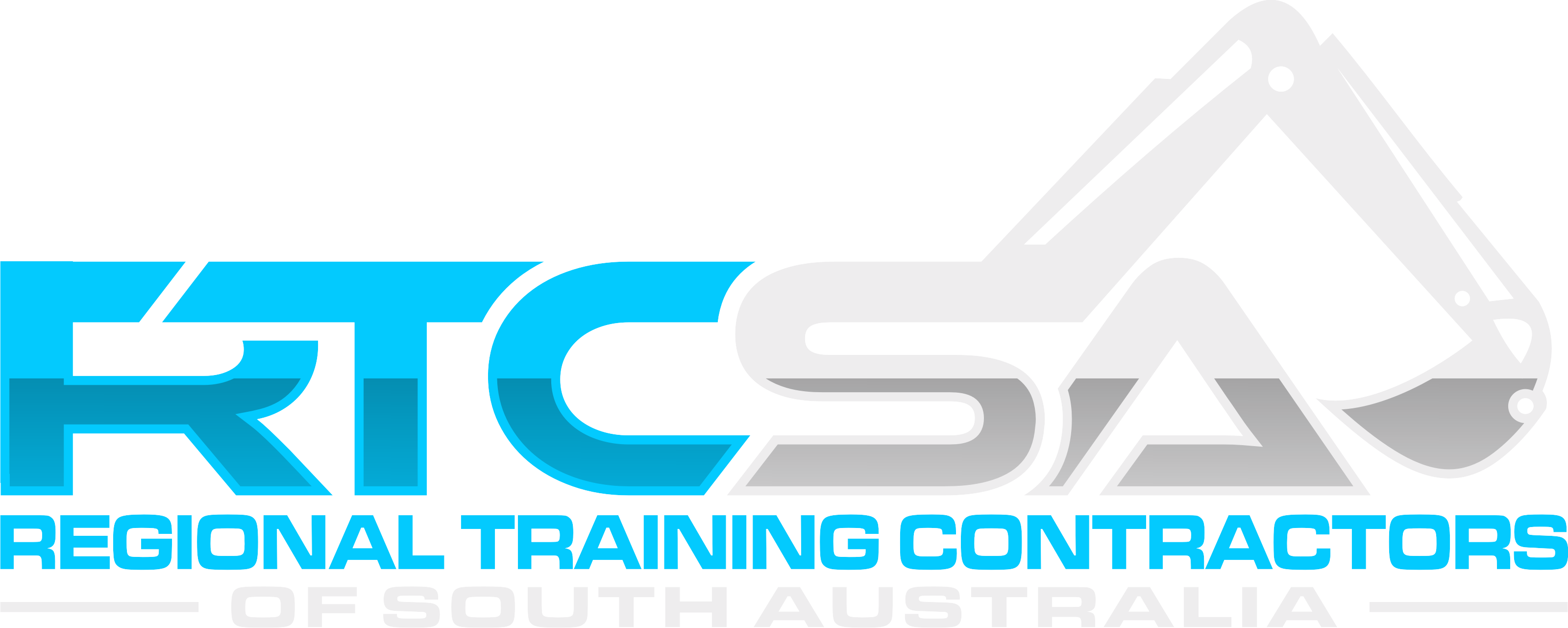Access and Equity
Policy: Access and Equity
This policy is the responsibility of Regional Training Contractors of South Australia. From here-on within this policy, we, us, or our, means Regional Training Contractors of South Australia (ABN: 72 667 868 941), also trading as RTCSA.
This policy applies to all staff, clients, and training participants, and covers all work-related functions and activities including training courses delivered by RTCSA. It also applies for all recruitment, selection and promotion decisions.
The objective of Regional Training Contractors of South Australia’s Access and Equity policy is to provide a set of criteria and values in the provision and maintenance of our business that are fair and reasonable, that reflect a safe and positive work and/or learning environment and that encourage equality and diversity.

Definitions:
For the purposes of this Access and Equity policy, the following definitions apply:
Access and Equity:
Access and Equity are principles of social justice, and can be defined as such:
- Equity – recognising that some people are at a greater disadvantage than others in being able to work and access services and,
- Access – the capacity of people to physically enter a building/space or use a service or facility.
Businesses need to ensure that equity and access issues are addressed and barriers to participation and the achievement of suitable outcomes are reduced as far as is reasonably practicable. In relation to our business this means ensuring that individuals with differing needs and abilities all have the same opportunity to work or gain new skills, knowledge and experience through training and education, irrespective of age, gender, race, religion, sexual preference, disability, marital status, family responsibility or social, geographic, cultural, linguistic background, etc.
Merit refers to an individual’s skills, qualifications, talents, experience, knowledge, and competence. Personal characteristics such as age, marital status, gender, etc. are generally irrelevant in relation to how well an individual can fill or complete a particular role or task.
In relation to RTCSA this means our recruitment, selection, and business decisions are based simply on how well the individual’s merit matches the role or task required.
Discrimination:
Direct discrimination occurs when someone is treated less favourably than others based on their background or certain characteristics such as: race, sex, pregnancy, marital status, family responsibilities, breastfeeding, age, disability, sexual orientation, gender identity or intersex status.
Indirect Discrimination occurs when a practice, policy or rule which applies to everyone, has a worse effect on some individuals, or group of individuals, than others.
Sexual Harassment:
Sexual harassment includes unwelcome behaviours of a sexual nature, in which it could be expected that the person would feel offended, humiliated or intimidated – a reasonable person, having regard to all the circumstances, would have anticipated that the person harassed would be offended, humiliated or intimidated.
Sexual harassment could include, but is not limited to, any of the following: unwanted sexual advances; unwarranted touching; sexual suggestions, jokes, or invasive questions; the display of sexually explicit or offensive material – eg Emails, posters, magazines, etc.; gender-based insults.
Some important notes to consider are: A single incident could be constituted as sexual harassment; that not objecting at the time, does not mean consent was gained; and that behaviour that doesn’t affect one person, may affect another.
Bullying/Harassment:
Bullying is any behaviour directed to another which is unwelcome and unwarranted, that offends, humiliates, intimidates, excludes or isolates, puts health and safety at risk, and makes the work environment unpleasant. Bullying can include, but is not limited to the following: verbal harassment – such as racist remarks, lewd comments, spreading rumours; non-verbal harassment – such as displaying offensive material, distributing degrading emails, crude hand or body gestures, withholding information required to perform work effectively; physical harassment – such as unwelcome physical contact, hitting, pushing, spitting at, or throwing objects at someone, attempting to restrain someone from leaving a situation.
What is NOT Harassment:
Harassment should not be confused with genuine critique and instruction given appropriately by staff or trainers. RTCSA have a legal right and responsibility to direct their staff and training participants in relation to performance and management. This also includes providing feedback or notifying staff or participants of an unsatisfactory performance or assessment. This is not bullying.
Racial Vilification:
Vilification is a PUBLIC act that incites or encourages, hatred towards, serious contempt for, or severe ridicule of, another person or group of people, based on the grounds of race. Vilification could include such things as: graffiti in a public place or comments made on social media such as Twitter or Facebook, making statements at a public meeting to incite hatred, etc.
In Australia, racial vilification is deemed unlawful and punishable by both State and Federal law.
Victimisation:
Victimisation is another form of discrimination. It means subjecting, (or threatening to subject), an individual to some form of detriment because they:
- Made an allegation of discrimination, harassment or bullying
- Lodged, or are proposing to lodge a complaint of discrimination or harassment
- Have assisted another person to lodge a complaint
- Are involved in an investigation into a complaint
- Asserted their rights in relation to discrimination, harassment or bullying
Regional Training Contractors of South Australia are committed to providing workplace and training conditions that are safe and positive environments. We take active measures and reasonable steps to prevent any form of discrimination. Any behaviour that constitutes discrimination, harassment, sexual harassment, bullying, victimisation or vilification will not be tolerated and will lead to appropriate action being taken. This could include dismissal from employment or training if allegations are proven correct.
Equal Opportunity – Australian Law:
The following legislation (as referenced by the Equal Opportunity Commission’s website: www. eoc.sa.gov.au), applies to discrimination, harassment sexual harassment, victimisation, vilification, and bullying in Australia:
- Australian Human Rights Commission Act 1986 (Commonwealth)
- Racial Discrimination Act 1975 (Commonwealth)
- Disability Discrimination Act 1992 (Commonwealth)
- Age Discrimination Act 2004 (Commonwealth)
- Sex Discrimination Act 1984 (Commonwealth)
- Workplace Gender Equality Act 2012 (Commonwealth)
- Privacy Act 1998 (Commonwealth)
- Equal Opportunity Act 1984 (SA)
- Racial Vilification Act 1996 (SA)
- Civil Liability Act 1936 (SA)
- Public Interest Disclosure Act 2018 (SA)
We all have responsibilities under the Act. Australian law considers discrimination that occurs in public life, including employment and training, on any of the grounds listed below, as unlawful and hence a prosecutable offence:
- age
- breastfeeding
- carer status
- disability or impairment
- gender identity
- lawful sexual activity
- marital status
- parental status
- spouse’s or partner’s identity
- physical features
- political activity/belief
- pregnancy
- race
- religious activity/belief
- sex
- sexual orientation

Rights and Responsibilities:
All staff, clients and participants involved with Regional Training Contractors of South Australia have the right to:
- be treated with dignity and respect.
- a recruitment process that is conducted in an ethical and responsible manner, without discrimination or favour, and ensuring fairness and compliance with Equal Opportunity legislation.
- be provided with information about access and equity, and of RTCSA’s policies and complaint resolution processes, prior to recruitment or commencement of training.
- access our training and assessment services irrespective of their age, gender, race, religion, sexual preference, disability, marital status, family responsibility or social, geographic, cultural or linguistic background.
- work and learn in an environment that is safe and free from discrimination, abuse or harassment, and to be treated fairly and with respect.
- learn from fully qualified and competent trainers that recognise individual learning styles and needs.
- any reasonable adjustments to either our workplace or training and assessing services to be implemented to ensure individual needs are being met. Participants are encouraged, to advise us, on the registration form or in person if they identify with any disability which may impact on learning, or the satisfactory completion of assessment.
- apply for recognition of prior learning or current competency.
- their work being assessed fairly.
- their personal records being kept private, which they can access upon request.
- lodge a complaint and have their concerns addressed quickly and in appropriate manner, without fear of victimisation.
- receive assistance to lodge a complaint.
- appeal against an assessment decision, or formal decision, made by Regional Training Contractors of South Australia.
All staff, clients and participants involved with Regional Training Contractors of South Australia have the responsibility of:
- treating others with dignity and respect
- not discriminating against, harassing or vilifying, other employees, clients or participants.
- reporting any breach to this policy if witnessed or encountered personally.
- making themselves aware of Access and Equity issues within the confines of legislation and this policy.
- not inventing a complaint of a frivolous or malicious nature with the intent to cause detriment to another person. (Please note that this would result in disciplinary action being taken against the complainant).
Lodging a complaint:
If you believe you are being, or have been, discriminated against, sexually harassed or bullied, you should report your concerns immediately.
Any complaints about breaches to this Access and Equity Policy will be dealt with seriously, confidentially and quickly.
The people to contact in the first instance are:
- Your Trainer
- The Regional Manager
- The Director – Compliance
These people will be able to listen to your complaint and provide assistance.
Alternatively, you may wish to refer to our Complaint and Appeals Policy and complete the complaint form attached. This policy can be found on our website: https://rtcsa.training/ or can be provided by our administration staff.
All staff and clients have the right to object to discrimination and harassment in any form, and to complain if such discrimination takes place. NO ONE will be victimised or treated unfairly for raising an issue or making a complaint of a genuine nature.
Individuals also have the right to contact the Equal Opportunity Commission at any time for information, advice or to lodge a complaint of discrimination. Their details are below:
The Office of the Commissioner for Equal Opportunity
GPO Box 464
ADELAIDE SA 5001
Website: https://www.equalopportunity.sa.gov.au/
Phone: (08) 7322 7070
Freecall: 1800 188 163
Policy: Access and Equity: Version: 1.1. Reviewed October 2022
